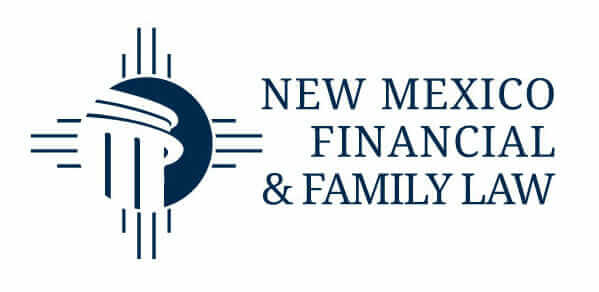How To Support and Help Your Family While Filing for Bankruptcy
Filing for bankruptcy can seem intimidating, especially if you aren’t exactly clear on how it might affect your day-to-day finances. One common misconception people have is that filing for bankruptcy effectively obliterates all of their regular income, meaning they won’t have money to pay bills, make rent, and keep food on the table for their families. In reality, bankruptcy’s goal is to protect you from creditors who could actually threaten your daily means of survival.
Exemptions for portions of income in Chapter 7 and carefully calculated payment plans under Chapter 13 both aim to keep needed money flowing to your household while you go through the process of managing debt. Another silver lining to be aware of is that, in the state of New Mexico, all public benefits are exempted from liquidation in Chapter 7, and they are largely left out of income considerations for Chapter 13. 75% of “disposable” income earned after filing Chapter 7 is also exempted, up to 40 times the value of the current federal minimum wage.
On top of these exemptions, you can seek access to charitable funds from public and non-profit sources to help you support your family and get through this tough financial time.
If you are having difficulties and considering bankruptcy or have questions about the process, you can speak to New Mexico bankruptcy attorneys near you for information, guidance, and assistance with filing.
When Filing Chapter 7 (Liquidation Bankruptcy), 75% of Wages and All Public Benefits Are Exempted
The good news for people looking to file Chapter 7 bankruptcy is that most (sometimes all) of the wages they earn are likely to be exempted from being liquidated and used to pay off creditors.
To determine how much income will be exempted, the trustee overseeing your case will ask you to document your average monthly income and monthly “reasonable and necessary” expenses. The difference between the two equals your disposable income (you can think of this as the money you spend for optional purchases or that you might put into savings). Then, only 25% of this remaining income is taken by your case trustee for the purposes of paying off creditors.
Once a portion of your debt has been repaid, the remainder of your unsecured debts may be discharged, meaning you aren’t legally obligated to pay them anymore.
The risk in not filing for bankruptcy is that creditors can start to actually garnish your wages, putting you in a worse position since they may be able to take more than 25% of your disposable income without any way to stop them, aside from filing for bankruptcy.
In addition to allowances for income, New Mexico rules (as well as many federal ones) exempt any public benefits from liquidation. This usually includes unemployment, workers’ compensation, disability benefits, and more.
Chapter 13 Bankruptcy Payments Are Calculated to Leave You With Income for Living Expenses
Chapter 13 bankruptcy is sometimes called “wage earners” bankruptcy because it presumes that the petitioner earns enough money to pay down a large portion of their debts over the next 3–5 years. If you do not meet income and debt limits for Chapter 7 bankruptcy, you will be required to file for Chapter 13 bankruptcy or potentially seek out another form of debt relief.
During Chapter 13 procedures, you and your case trustee will determine a reasonable monthly payment amount that will be distributed proportionally to your creditors. The payment amount is set using a calculation based on your income and expenses. You may use a federal form to make this calculation. If your income is below the median you may instead use a table that sets specific monthly payments according to income/expenditures ranges.
The whole goal of Chapter 13 is to make repayment more manageable without jeopardizing your financial solvency. If you are concerned that your payment amount will not be enough to cover unexpected expenses like child healthcare, then be sure to build in these expenses in your expenditures calculation. An experienced bankruptcy attorney can help you with this process.
Financial Aid Is Available in New Mexico for Those Experiencing Hardship During Bankruptcy
There are not any specific aid programs designed to assist families during bankruptcy. However, there are federal, state, and non-profit programs available to families and households experiencing financial hardship.
See the following resources for possible assistance and guidance:
- NewMexico.gov — “I need assistance”
- ChildCare.gov — “New Mexico: Financial Assistance For Families”
- NewMexico.GrantWatch.com
You can also speak to a bankruptcy attorney near you about your specific situation to see if they can refer you to programs for relief, grants, special exemptions, benefits, or other forms of assistance.
Get Help During Bankruptcy and Legal Guidance From New Mexico Bankruptcy Lawyers
New Mexico Financial & Family Law understands the hardship and heartache that can come with going through a tough financial period. We provide assistance and legal guidance to explore your options for debt relief. In some cases, that will involve bankruptcy, but in others, there might be alternative options. You can also be referred to resources other clients experiencing financial hardship have used in the past and found success with.
You have options for managing debts that don’t have to jeopardize the health, safety, and well-being of your children or your family. Reach out to local attorneys who care and who could help you get on the right path to financial recovery. You can schedule a confidential case review at New Mexico Financial & Family Law with no obligation when you call (505) 503-1637 or contact us online.
